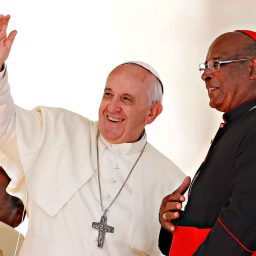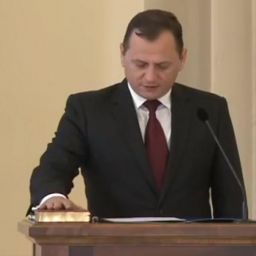Diplomat Profile: Mike Pompeo

Photo: Reuters
Mike Pompeo is an American diplomat, attorney, and politician who served as the 70th United States Secretary of State from 2018 to 2021 under President Donald Trump. He has been an influential figure in shaping American foreign policy with his poignant perspectives on a range of international issues. Born on December 30, 1963, in Orange, California, Pompeo graduated first in his class at the United States Military Academy at West Point in 1986. After serving in the Army for five years, he left to pursue a law degree at Harvard University, where he was an editor of the Harvard Law Review. He then embarked on a career in business before entering politics in Kansas as a congressman in 2011. Pompeo’s political career took a significant turn when Trump appointed him as the Director of the Central Intelligence Agency (CIA) in 2017. He played a crucial role in shaping the Trump administration’s intelligence policies and approach toward countries like North Korea and Russia. A year later, he was appointed Secretary of State, becoming the leading figure in executing America’s foreign policy agenda. As Secretary of State, Pompeo was known for his hardline approach towards several international issues. He was instrumental in leading the U.S.’s “maximum pressure” campaign against Iran, which included the withdrawal from the Joint Comprehensive Plan of Action (JCPOA), commonly known as the Iran nuclear deal. He also oversaw the strengthening of strategic ties with Israel and the brokering of the Abraham Accords, which normalized relations between Israel and several Arab nations.
Pompeo was also involved in the denuclearization negotiations with North Korea, accompanying Trump to the historic Singapore and Hanoi summits. However, these talks ultimately stalled without reaching a comprehensive agreement. On China, Pompeo was a vocal critic of the Chinese government’s policies, particularly regarding Hong Kong, the Uighurs, and Taiwan, marking a significant shift in U.S.-China relations. One of Pompeo’s defining characteristics as a diplomat was his willingness to adopt a more confrontational approach, reflecting his belief in “realpolitik” and the importance of American strength and unilateral action. This was a departure from his predecessors’ emphasis on multilateralism and diplomacy. Despite criticism from those who argued this approach strained alliances and isolated the U.S., Pompeo maintained that it was necessary to protect American interests abroad. However, Pompeo’s tenure was not without controversy. His handling of the State Department, including his treatment of career diplomats and the ousting of the Inspector General, drew criticism. There were also concerns about his use of State Department resources for personal and political purposes. Despite these controversies, Pompeo made a significant impact on U.S. foreign policy. His tenure as Secretary of State was marked by a distinct shift in strategy and style, reflecting the broader foreign policy approach of the Trump administration. One of his most notable accomplishments was the orchestration of the Abraham Accords. A diplomatic breakthrough in the Middle East, the Accords resulted in the normalization of relations between Israel and several Arab nations, including the United Arab Emirates, Bahrain, Sudan, and Morocco. This marked a significant realignment in the region and was hailed as a major step toward peace and stability. Pompeo’s role in facilitating these agreements underscored his commitment to fostering stronger ties between Israel and its neighbors. Another contribution was his handling of the North Korea situation. Pompeo played a crucial role in arranging the historic Singapore Summit between President Trump and North Korean leader Kim Jong Un in June 2018, marking the first-ever meeting between sitting leaders of the two countries. Pompeo’s involvement in these high-stakes negotiations, although they did not ultimately result in denuclearization, marked a significant diplomatic endeavor and represented a shift in how the U.S. engaged with North Korea. Pompeo also took a tough stance on China, calling out the Chinese Communist Party’s human rights abuses and aggressive actions in the South China Sea. He declared China’s actions against the Uighurs in Xinjiang as genocide and revoked Hong Kong’s special trade status in response to Beijing’s imposition of a new national security law, marking a significant hardening of U.S. policy towards China. On the issue of Venezuela, Pompeo led international efforts to recognize Juan Guaidó as the country’s legitimate leader over Nicolás Maduro. The move was part of a broader strategy to pressure Maduro’s regime and support democratic governance in Venezuela. Moreover, Pompeo’s “Clean Network” initiative aimed to safeguard America’s assets including data and intellectual property from aggressive intrusions by malign actors, notably China. He rallied more than 50 countries, 170 telecom companies, and many leading tech companies to the U.S. side on 5G, marking a significant stride in cyber diplomacy. In terms of institutional reform, Pompeo launched the Commission on Unalienable Rights, aimed at grounding U.S. foreign policy in a better understanding of human rights. Despite controversy surrounding it, Pompeo argued that it was a necessary step in realigning American diplomacy with the country’s founding principles. Pompeo’s assertive diplomacy left an indelible mark on U.S. foreign policy. His achievements, from the Abraham Accords to the handling of relations with China, North Korea, and Venezuela, demonstrate his hardline approach and commitment to protecting American interests. Whether one agrees with his tactics or not, Pompeo’s tenure as Secretary of State was undeniably eventful and influential, shaping the course of American diplomacy in the late 2010s and beyond.
By Ovidiu Stanica

















